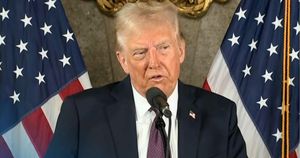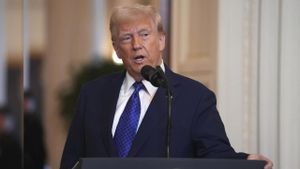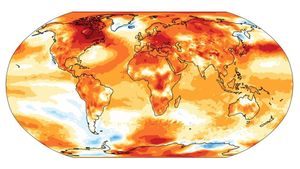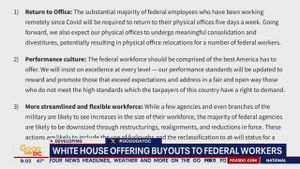Ukraine's President Volodymyr Zelenskyy has voiced strong concerns over the potential exclusion of his nation from international negotiations aimed at resolving the war with Russia, labeling such exclusion as "very dangerous." His remarks come at a time of heightened political maneuvering as discussions begin to shape around how best to approach ceasing hostilities and potentially holding elections within Ukraine.
Speaking with The Associated Press, Zelenskyy emphasized the grave ramifications of excluding Ukraine from talks, pointing out, "They may have their own relations, but talking about Ukraine without us—it is dangerous for everyone." These comments reflect widespread apprehension within Ukrainian leadership as formal discussions between U.S. and Russian officials loom.
The specifics of these negotiations are still murky, particularly following Donald Trump's recent remarks indicating serious talks between American and Russian officials have already taken place. Having pledged during his campaign to end the war swiftly, Trump remains under scrutiny for the absence of concrete plans to achieve this outcome.
Following Trump's proposed framework, which reportedly includes calls for the resumption of elections, Keith Kellogg, Trump’s special envoy for Ukraine, stressed the importance of these elections, stating they must be held to reinforce democratic processes, even during a time of conflict. "I think it’s good for democracy, the beauty of stable democracy is having more than one person who can potentially run," Kellogg told reporters.
Among the backdrop of tensions, Polish President Andrzej Duda has also underscored the importance of Poland’s role should discussions on Ukraine proceed under Trump’s administration. Duda expressed, "It would be in Ukraine's interest to have Poland present there," acknowledging the intertwined fates of Polish and Ukrainian interests as they face the revived threat of Russian aggression.
Yet, the prospect of elections is not without its dissenters. Dmytro Lytvyn, communications adviser to Zelenskyy, cautioned against the notion of holding elections without substantial security guarantees, labeling Trump's plans as insufficient without broader frameworks to deter Russian interference. "If Trump’s plan is just a ceasefire and elections, then it is a failed plan—Putin will not be deterred by these two things alone," he asserted.
The current martial law imposed within Ukraine complicates this situation, as legal provisions expressly prohibit holding elections under such circumstances. Despite this, Zelenskyy has indicated his openness to pursuing elections should hostilities cease and adequate security measures are guaranteed. "If we establish strong security guarantees, we could allow for elections later this year," he said.
At the same time, Zelenskyy has warned of ramifications for Ukraine's political stability if elections are forced without proper measures. A former U.S. official expressed concern, noting, "Lifting martial law could potentially destabilize Zelenskyy's administration and allow Russian interference". This insight drives home the complications intertwined within election timelines and ceasefire negotiations.
Within this raised tension, the Kremlin's stance has been causally significant, with officials implying the necessity of elections for any agreement to be legitimized. Dmitry Peskov, the Kremlin spokesperson, remarked on the potential need for elected officials to restore faith and legitimacy to governance—a narrative Zelenskyy countered as "a trap" set by Putin to diminish Ukraine’s negotiating power.
The struggle for balance continues as international leaders, including Zelenskyy, press for the inclusion of the Ukrainian voice at the talks table. The U.S. and Europe must unite to present strong security frameworks to dissuade Russian aggression. For Zelenskyy, any proposed agreements must include not only military support but also frameworks for economic rebuilding and the assurance of Ukraine's sovereignty.
Despite these efforts, optimism surrounding immediate peace has waned, mingled with the harsh realities of conflict. The persistence of Russian military encroachment means daily struggles for Ukrainians, with knotted infrastructure and living conditions shattered by war. The dire state of affairs highlights the urgency for both sides to find common ground.
Removed from these discussions, Zelenskyy warns: "Ignoring Ukraine's position would set a precedent for future actions, not just by Russia but altering the very political dynamics within the region."
The situation remains fluid as international negotiations evolve. While the clock ticks on resolving one of Europe's most pressing crises, the need for unity and direction from Ukraine, its allies, and even the prospective Trump administration grows more urgent. Without careful navigation and inclusive dialogue, the conflict risks deepening, potentially leading to disastrous consequences for Ukraine and its neighbors.



